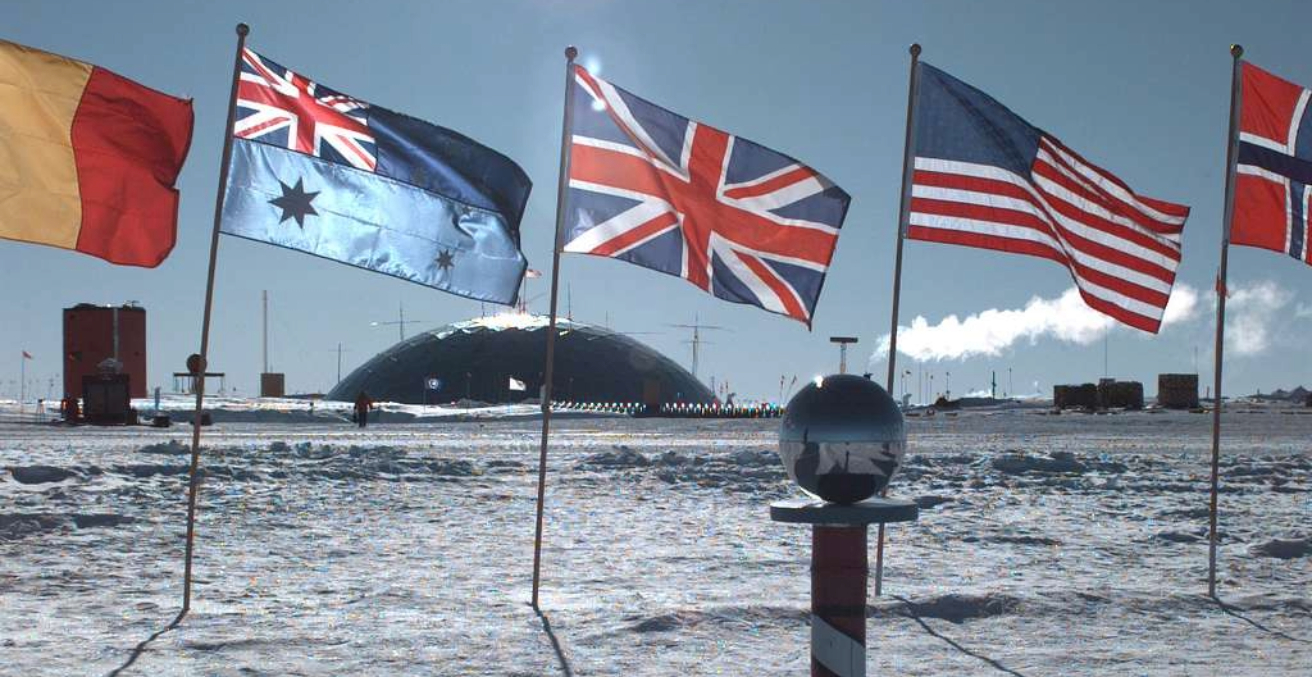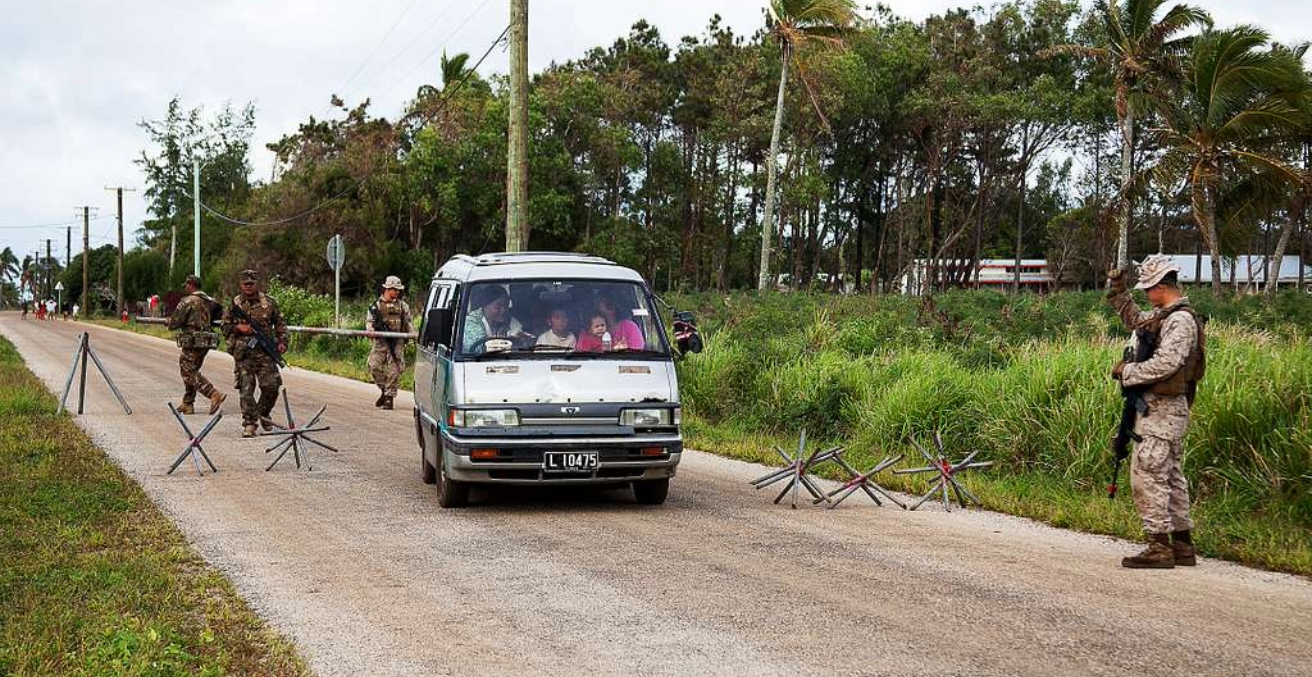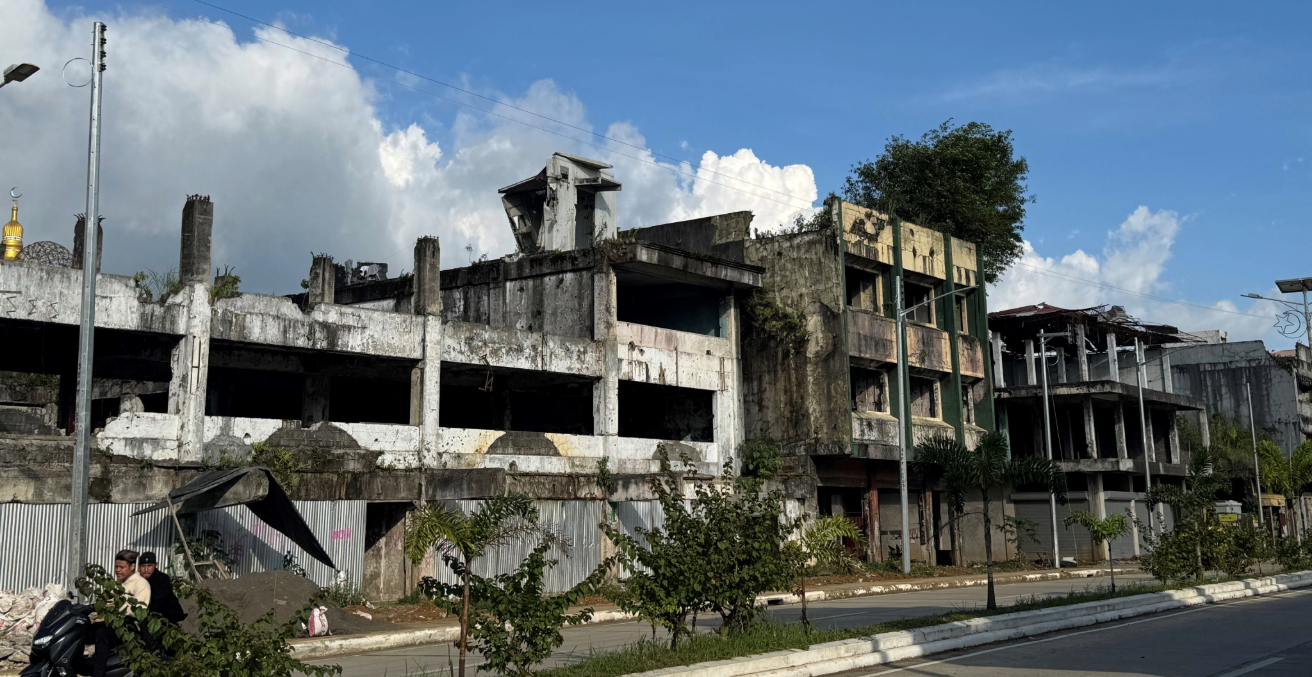Far from needing nuclear weapons to enhance its defence, North Korea developed them in spite of being one of the most secure countries in the world. This is why Beijing is so vital for any diplomatic resolution.
In testing a hydrogen bomb—in the context of a visual display where such a device was pictured with Kim Jong Un adjacent to what appeared to be the nose cone of a missile—North Korea has clearly crossed a red line. A military solution would leave the Korean peninsula (and probably also Japan) in ruins and might even result in a direct conflict between China and the United States. It is self-evidently not an option. The alternative is diplomacy.
The Chinese government, while condemning this and past North Korean provocations, has consistently demanded that the United States offer negotiations, and specifically abandon military exercises and interventionist rhetoric. This is the path, according to Beijing, to ‘denuclearisation’. The ostensible assumption behind the position taken by China is that North Korea has been driven to adopt nuclear weapons because of uncertainties regarding the efficacy of its conventional armaments in the face of US and South Korean threats. The reverse is in fact the case.
Formerly, North Korea was one of the most secure countries in the world. In 1961, North Korea entered a formal alliance with Beijing which has been in existence ever since. Even before the concluding of that alliance, Chinese support was unstinting. In 1950, despite an immense cost in blood (perhaps 200,000 fatalities) and treasure, in a move that delayed unification for generations, Chinese forces ensured that hostile powers would not occupy what is its most vital geopolitical theatre. With the waxing of Chinese power in the ensuing decades North Korea’s security guarantee must rate as one of the most formidable on the face of the globe.
Ever since the presidency of Jimmy Carter, the United States has sought to withdraw the American forces in the South that are the legacy of Pyongyang’s decision—approved and abetted by the Soviet Union—to invade the Republic of Korea. While it is a hypothetical, if the DPRK had followed through with the bilateral commitment that it entered in 1992 to denuclearise the peninsula it is more than likely that there would be no US forces there today.
The Agreed Framework
It should be recalled that the commitment in question followed a facilitating unilateral decision by the US to remove battlefield nuclear weapons from Korean soil. Even after the bad faith manifest in the subsequent 1993 nuclear crisis, the United States led a multilateral effort—the Agreed Framework—to fund a proliferation-resistant nuclear power program in the North, in exchange for transparency and the abandonment of all nuclear weapon activities.
The security of the DPRK has since, however, been placed at hazard by the decision to develop nuclear weapons, a decision pursued despite solemn international treaty obligations to the contrary and for the last decade in the teeth of specific and ever more exacting UN Security Council condemnation and prohibition.
Chinese displeasure at this development has become evident, as could be expected from the fact that Beijing’s relations with Washington, Seoul and Tokyo are much more important and consequential, in sum, than its sponsorship of Pyongyang. Meanwhile, as the DPRK has become more isolated its pronouncements on nuclear matters have become more strident, and possession of nuclear capability has now been raised to the status of core state doctrine.
Why has the North Korean regime so readily discarded such an apparently advantageous security shield? Recall that there are no conceivable circumstances under which US or ROK forces would be used against the DPRK, absent overtly aggressive action from the North. With its conventional forces alone, North Korea has been capable for many years of reducing Seoul and its environs—more than one quarter of the ROK’s population and economy—to total destruction.
Clearly, the answer has little to do with the DPRK’s security deficit. The explanation must be sought elsewhere.
Looking inward
It is a feature of some approaches adopted in international relations analysis to discount consideration of domestic political dynamics. Foreign policy, on this view, is driven principally by the perception (or perceptions) of the dynamics of state interaction. The general objections to this position are well known; in the case of North Korea, ignoring the position, aspirations and vulnerabilities of the world’s only hereditary socialist autocracy is to neglect the most vital springs of the regime’s behaviour.
The question then arises, under these circumstances which diplomacy would be efficacious? In practical terms, the Trump administration is hardly likely at this juncture to be one-tenth as generous as was Bill Clinton with the Agreed Framework, but even if Trump had a complete change of heart, if such an offer failed to defuse a (then) tentative nuclear program it is most unlikely to reverse what has become in the ensuing years a vital declaratory doctrine.
The diplomacy that would have some hope of changing North Korea’s trajectory would have to be the result of initiatives from Beijing (and also Moscow). If China (and Russia) were to interdict trade across their borders with North Korea, the regime would not be able to sustain its war fighting capability beyond, perhaps, six months. Neither China nor Russia need to take such direct steps, but they do need to indicate that this expedient is a clear possibility.
It is only by leveraging the system’s sole real vulnerability that the conditions that have led to this crisis can be transformed. And China has the greatest need to take the initiative, not least because North Korean missiles are now a potential threat to its own population.
There would be much very difficult work to do. In particular, most probably the United States would need to accept the neutralisation of the peninsula and the withdrawal of its military forces from its bases in the Republic of Korea. The hereditary Kim regime would expect no less, and indeed would lose all credibility without an outcome that could be represented to its own people as a triumph. But in exchange for full North Korean abandonment of its nuclear and missile programs, and a viable transparency regime to ensure compliance, the bargain would be worthwhile.
James Cotton is Emeritus Professor at the University of New South Wales Canberra, Australian Defence Force Academy. He is a fellow of the Australian Institute of International Affairs.
This article is published under a Creative Commons Licence and may be republished with attribution.




